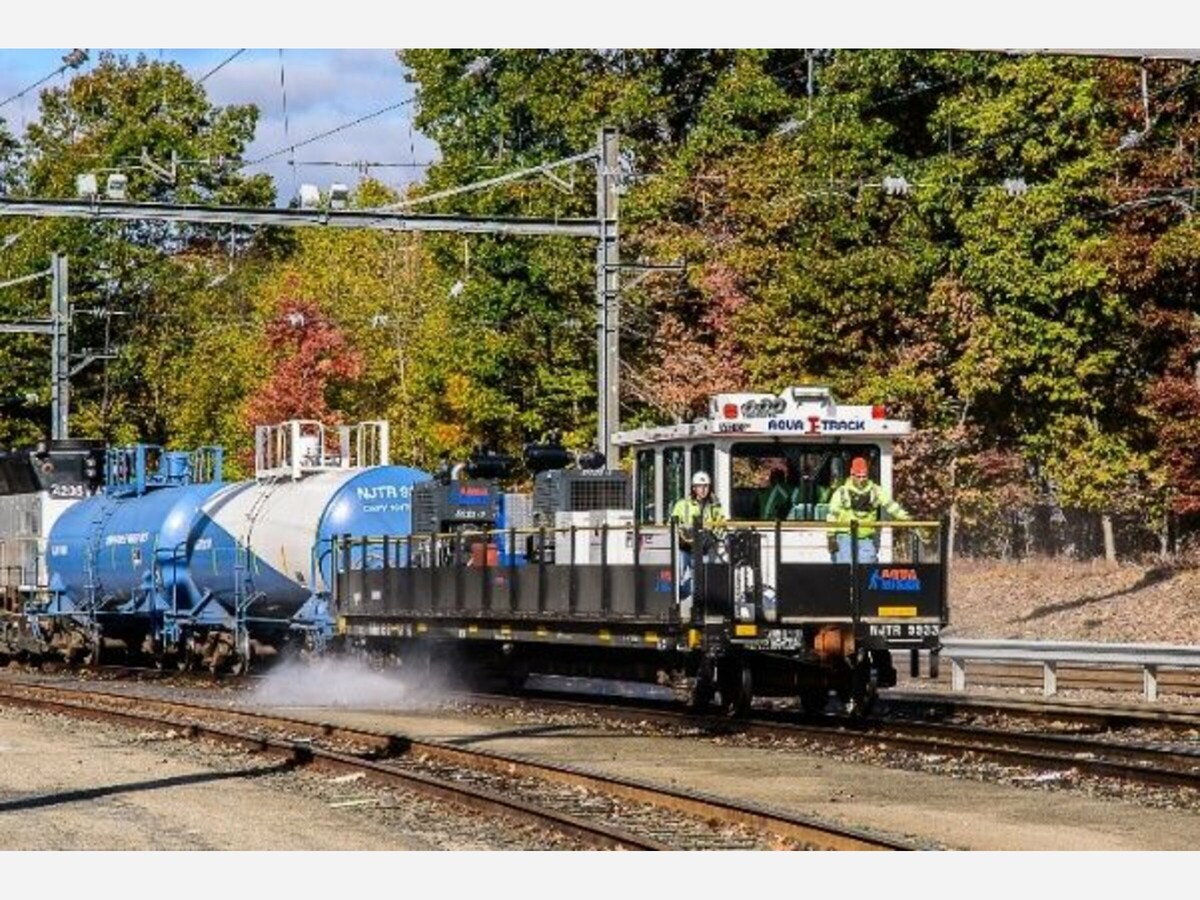Image


The AquaTrack equipment is a high-pressure power washing system that removes the oily residue left behind by fallen leaves on the tracks to prevent train delays caused by “slippery rail” conditions.
“The AquaTrack is just one example of how we continue to leverage technology to keep our operations running efficiently,” said New Jersey Department of Transportation Commissioner and NJ TRANSIT Board Chair Diane Gutierrez-Scaccetti. “Our core mission is to move New Jersey safely and reliably and we are using every tool at our disposal to accomplish that.”
“As NJ TRANSIT continues to improve our rail network’s on-time performance, AquaTrack units help maintain service reliability for our customers,” said NJ TRANSIT President & CEO Kevin S. Corbett. “These two AquaTrack units are deployed strategically throughout our system to keep our tracks clean and our trains rolling throughout the fall season.”
The AquaTrack system has been in use by NJ TRANSIT since October 2003. It consists of two 250-horsepower diesel-engine units mounted on a flat car with an operator-controlled cab.
Two pressure-pump units dispense water up to 20,000 pounds per square inch directly to the top of the rail. The process uses 17 gallons of water per minute.
 Learn more about AquaTrack.
Learn more about AquaTrack.The original AquaTrack operated primarily on the Morris & Essex and Montclair-Boonton lines, which face challenges including the hilly areas around Glen Ridge and Summit stations, washing the rails twice a day Monday through Friday—once overnight and again during midday hours. On weekends, the Pascack Valley and Main/Bergen County lines are usually covered.
In 2016, NJ TRANSIT unveiled its second AquaTrack unit, which allows the cleaning process to maintain a larger coverage area, helping to prevent delays caused by slippery rail.
Fallen leaves left on rail tracks can cause a condition known as “slippery rail” – a challenge facing all railroads in the Northeast and other parts of the world where deciduous trees are prevalent.
The decaying leaves create an oily residue that coats the rails and causes poor traction. The decreased train speeds, in turn, create delays.
In addition to AquaTrack, NJ TRANSIT trains are equipped to spray sand on the rails in front of their wheels to increase traction. NJ TRANSIT also trims trees to help stem the number of leaves on the tracks.
For more information and to view the AquaTrack in action, click here: njtransit.com/aquatrack.
Morristown Minute has been approved for the 2022 Local News Fund!*
Our reporters will be dedicating time and resources to investigating the roadblocks to mental health accessibility in our town.
Donate to Morristown, NJs local mental health accessibility fund today!
 Scan or click to donate!
Scan or click to donate!*The 2022 Local News Fund is a program administered by the Local Media Foundation, a 501(c)(3) organization affiliated with the Local Media Association. The program's purpose is to allow independent and family-owned news organizations to solicit tax-deductible donations from their communities for journalism projects that focus on critical local issues. Contributions to this program are tax-deductible to the full extent of U.S. law; please consult a tax advisor for details.